Facebook's Terrible Uncle Strategy Is Driving Away The Kids
a social media network that makes your terrible uncles even more terrible and lets them see all your stuff was not going to stay cool for long
I opened my first Facebook account in 2006.
My Facebook debut follows a common millennial-aged pattern. I was entering my freshman year of college, and I was eager to use my new .edu email address to sign onto what I’d heard described as a slicker-looking version of MySpace that didn’t let users auto-play tracks from their favorite rap-rock band.
Getting a Facebook account felt like an entry-point into adulthood, a means by which me and my same-aged cohort might socially network, post photos, and find out about inappropriately-aged parties where someone might give us beer. It was, fundamentally, a cool place to be, a site where young people could figure out how they themselves might become cool.
Fast forward to 2021, and Mark Zuckerberg has transmorgified his grim and shark-eyed visage into a only slightly less creepy-looking 3D avatar, in a virtual world that he insists on calling the Metaverse. Legions of people make fun of it, and make fun of him, on Twitter.
For the first time in a long while, a faint whiff of desperation hangs over Facebook. It’s a vulnerability that seems much more present than it was when the company was being (rightly) accused of bringing about genocide, pandemic deaths, and the rise of Donald Trump. That is because something more terrible than empowering fascism or mass-murder has happened to Facebook, at least from its own perspective.
Facebook has realized that it is no longer cool. No: from the perspective of the young, Facebook has become The Platform of Your Terrible Uncle. Facebook use among teenagers is now down by 16% year over year. Adults under 29 are spending 5% less time on the social network. An ever-growing number of young people are never bothering to set up Facebook accounts at all.
And now, thanks to the recent barrage of articles on the company based on whistleblower sources, investors know that this cool apocalypse - a fact Facebook apparently tried to keep hidden for years - is happening too.
How did Facebook shift from a place where the college-aged millennials of the 2000s posted ass shots and party pictures into a place where the college-aged Gen Zers of today grudgingly log-on to virtually kiss their QAnon-addled great aunts?
In large part, that’s because it’s what Facebook thought it needed to do.
Facebook wanted the entire world to get onto its platform, because it needed the entire world’s data to power its stupendously popular advertising machine. That meant convincing your terrible uncle to get a Facebook account, which he could then use to be terrible at you with.
Once these terrible uncles were on Facebook, the company proceeded to use its technology to ply them with a constant sea of information that would make them even more terrible. And since Facebook wants to maximize everybody’s data-filled interactions with everybody else, it encouraged those terrible uncles to comment on everything their young, cool relatives posted.
Even if the post in question was a picture of a cheeseburger that really didn't warrant a non-sequitur Terrible Uncle comment on how Hillary Clinton devours the delectably fear-flavored kidneys of children.
And for a while, Facebook’s obviously deranged engagement strategy worked.
During the 2000s and 2010s, most of the world really did pour onto Facebook. The site became a great and heaving mish-mash of young cool people and their terrible uncles and everything in between. Facebook gleefully hoovered up their data. It made great gazillions of dollars. And to keep the money flowing, Facebook continuously came up with creative new ways to shake the jar to make the spiders it had captured within it fight in useful, data-exuding ways.
Not that Facebook cared much about the fighting, as we can see from its many years of making mouth-noises in the general direction of changing various harmful practices while continuing to slouch roughly towards Bethlehem anyway. What Facebook cared about was making money, and from that point of view, the platform’s stunning new reach over all of humanity, from cradle to grave, was a marvelous coup.
What Facebook didn’t account for is that this global Terrible Uncle business model was fundamentally opposed to keeping Facebook cool. For a very long time, it apparently didn’t occur to Facebook that allowing its network to be overrun by terrible uncles, nosy grandparents, frothing white supremacists, and racist boomer memes would chase off its original user-base: young, cool people.
They were warned. They should have seen this coming as early as the late 2000s.
If you were amongst that original millennial-aged cohort of Facebook users, you probably remember that point in the late 2000s when the entire world started using Facebook.
Specifically, you probably remember when all your older relatives and your bosses and your parent's friends and your friend's parents friends descended on the platform. And you probably recall, with fear and trepidation, how Uncle Bill and Great-Aunt Stacy and your 10th grade PE teacher all started demanding that YOU add THEM as a friend on Facebook.
From the point of view of these older relations, this was all perfectly rational. Facebook was, after all, pitching itself to them as a means of connecting in wholesome ways with friends and family. That included their younger relatives - and these older Facebook users hadn’t grown up on the Internet themselves, they often didn’t grasp why their niece or nephew might post things online they didn’t want to share with all their cheek-pinching and judgmental blood-relatives.
The Terrible Uncles had arrived.
Which meant that millennial-aged Facebook users who just wanted to post pictures of their Halloween 2009 Slutty Emo Kid costume on a platform dominated by their understanding and sexy peers were faced with a lousy choice.
They would either have to purge their Facebook accounts of all the stuff they’d uploaded that made it fun to use - like pictures of butts and really bad party decisions. Or, they would have to accept the consequences of letting Uncle Bill and Great-Aunt Stacy page through all their college-party content.
Those consequences were real. Sure, Uncle Bill might make a scene at the family Thanksgiving or rat on you to your blind-great-grandma. But it extended further than that.
Consider the rash of 2000s era articles and editorials in which older writers tore their clothes and keened about how Young People Post Inappropriate Things On Facebook, Which Is Probably Why They Don’t Have Jobs (pay no attention to the global recession). Older Facebook users, including potential employers, began trolling the platform to search for incriminating content on their millennial hires.
The years ground on, and Facebook became an ever more massive global and political force. It made untold millions, and socked away the personal data of millions upon millions of people. Politicians learned to exploit it to ever-darker ends, and so did propagandists. Mark Zuckerberg, incredibly, contemplated a run for President.
And during all that time, more and more so with each year, Facebook was becoming less cool.
Which brings us to today.
For Gen Z, Facebook isn’t where any sane person would post pictures of their butts or videos of themselves drinking malt liquor while skateboarding (or whatever it is the young people do). To most of their age cohort, Facebook is now more like infrastructure. It’s a gloomy but necessary means of wishing PeePaw and MeeMaw a happy birthday, or reading details about a boring event your college professor wants you to go to.
When they do use Facebook, they aren’t telling it in the way Facebook wants to, in the way that millennials did when we were their age. They aren’t telling Facebook all their secrets, or feeding it all of their photographs, or spending huge swaths of their day chatting with friends on the platform. They have TikTok, Instagram, and Snapchat for that.
Because who wants their Terrible Uncle to know all their secrets?
Yes. Instagram is owned by Facebook, and young people still like Instagram (I can hear you about to say that). That’s certainly important. But even Instagram is, according to the most recent data, losing popularity and market share amongst the youngest demographics in some markets.
The Terrible Uncle strategy that Facebook adopted way back in the late 2000s, back when I was still in my teens, may finally be coming around to bite the company in the butt.
While I’d love to see Facebook go down hard, it will be a bittersweet victory, no matter how it happens, or when. That’s because in no small part thanks to them, the Terrible Uncles - whipped up into fits of social-media induced rage - have taken control of much of our media, our government, and large swaths of the world. And while a terrible uncle in isolation can be dis-invited from Thanksgiving, or booted off your Close Friends list, no such mechanism exists for the Terrible Uncles that hold our lives in their hands.

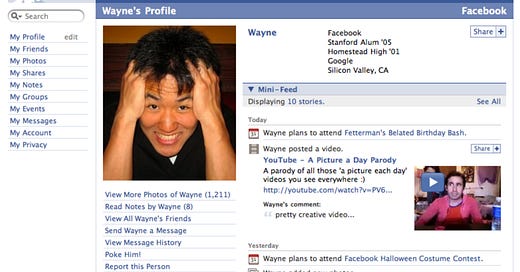



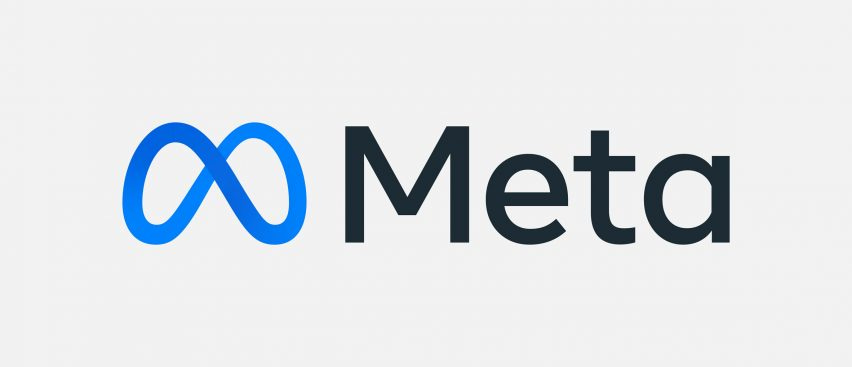
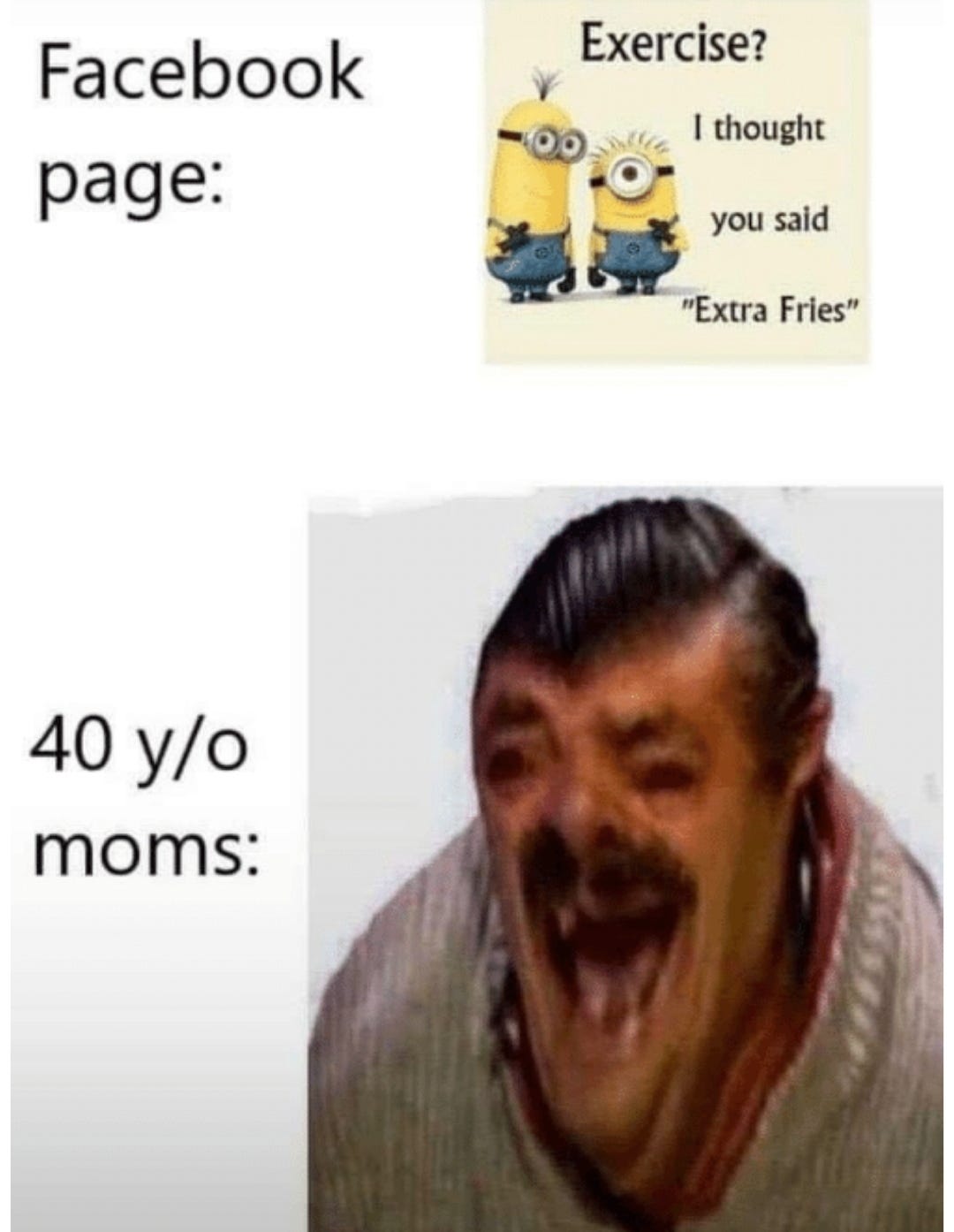
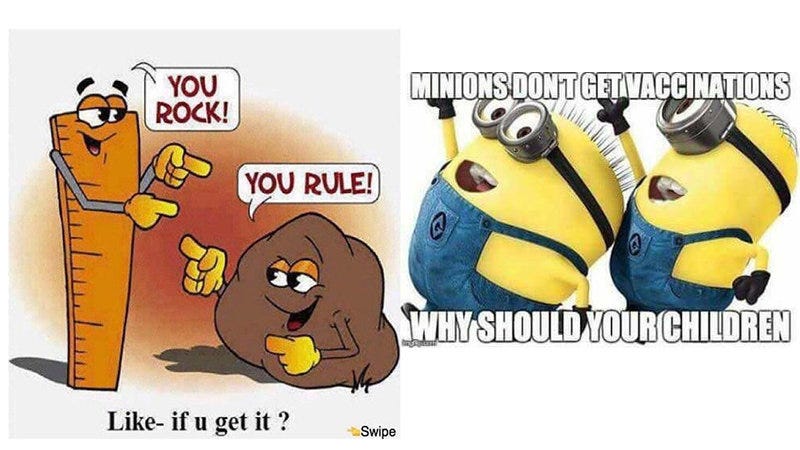
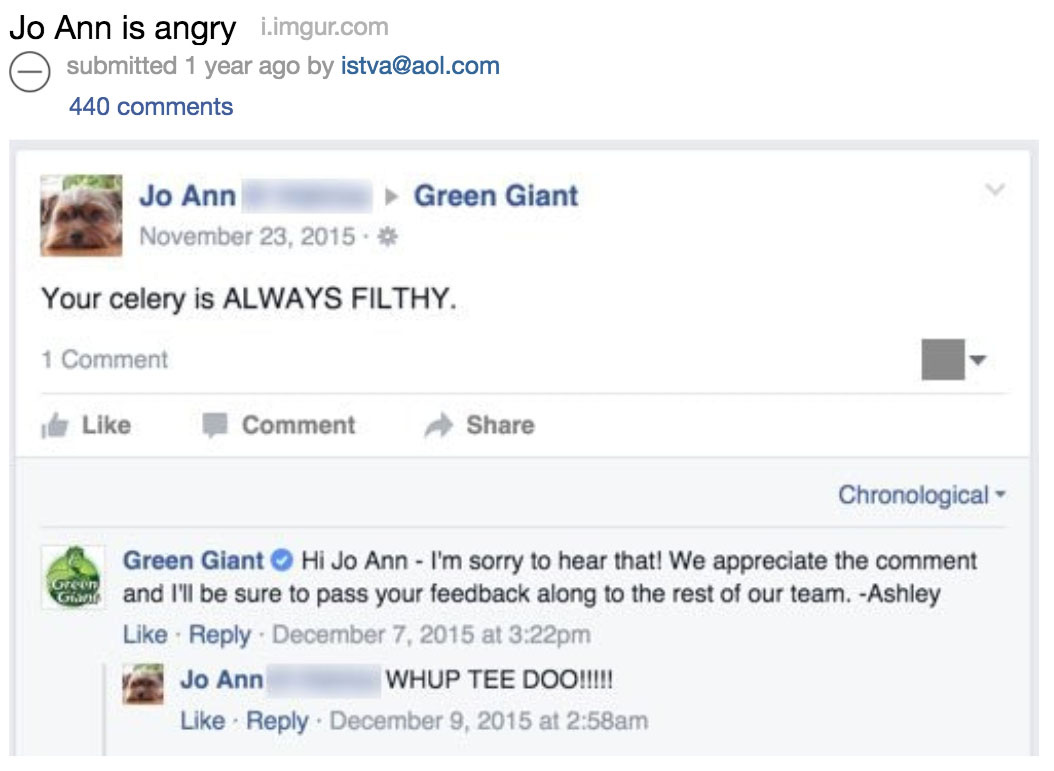
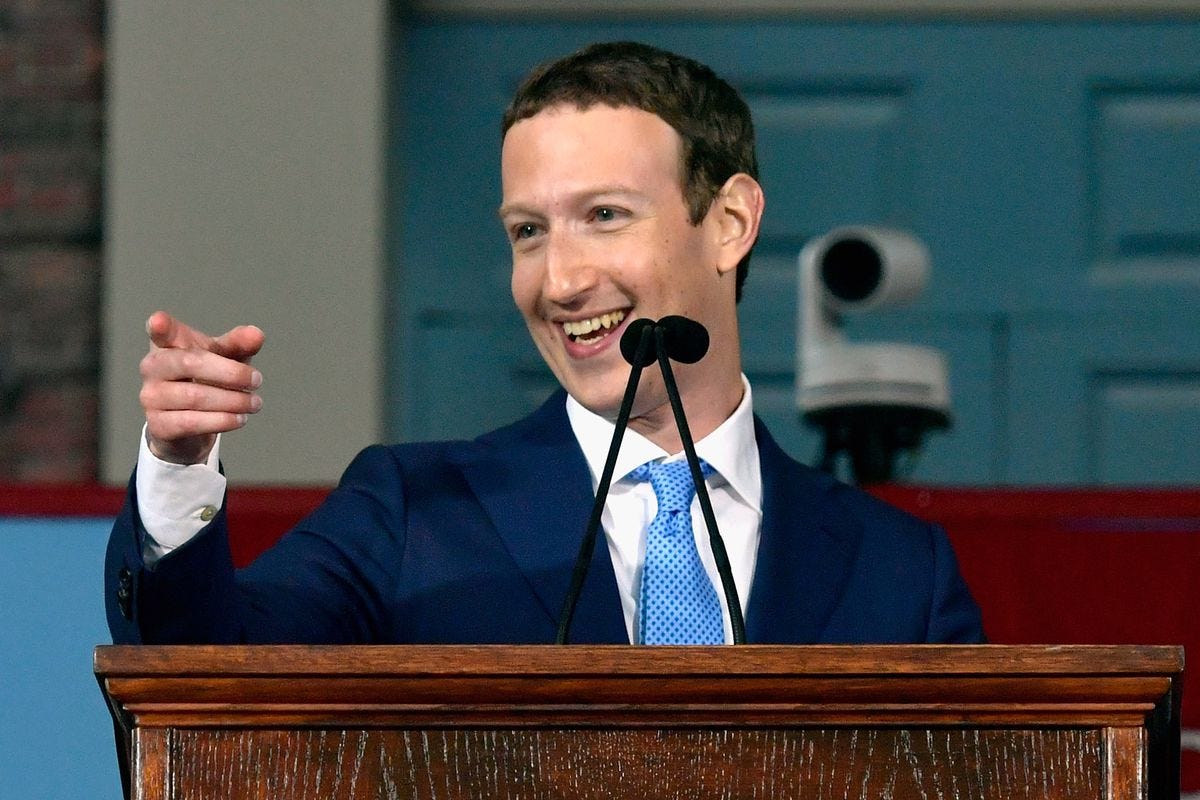

I found this account of FB really interesting because I've been on the platform since 2007 and haven't remotely had the experience you describe. But...I don't have a passle of family members to deal with, thank dog. It's how I keep in touch with my artist friends and colleages and my friends and contacts in Mongolia. It's where I connect with local gardeners and folks interested in local history. I send $$ to suppport Ukraine via the "Meanwhile in Ukraine" FB page. I'm a mid-boomer FWIW and know perfectly well how good I've had it.
All the best to you and I'm glad I've found your Substack account!
Susan Fox